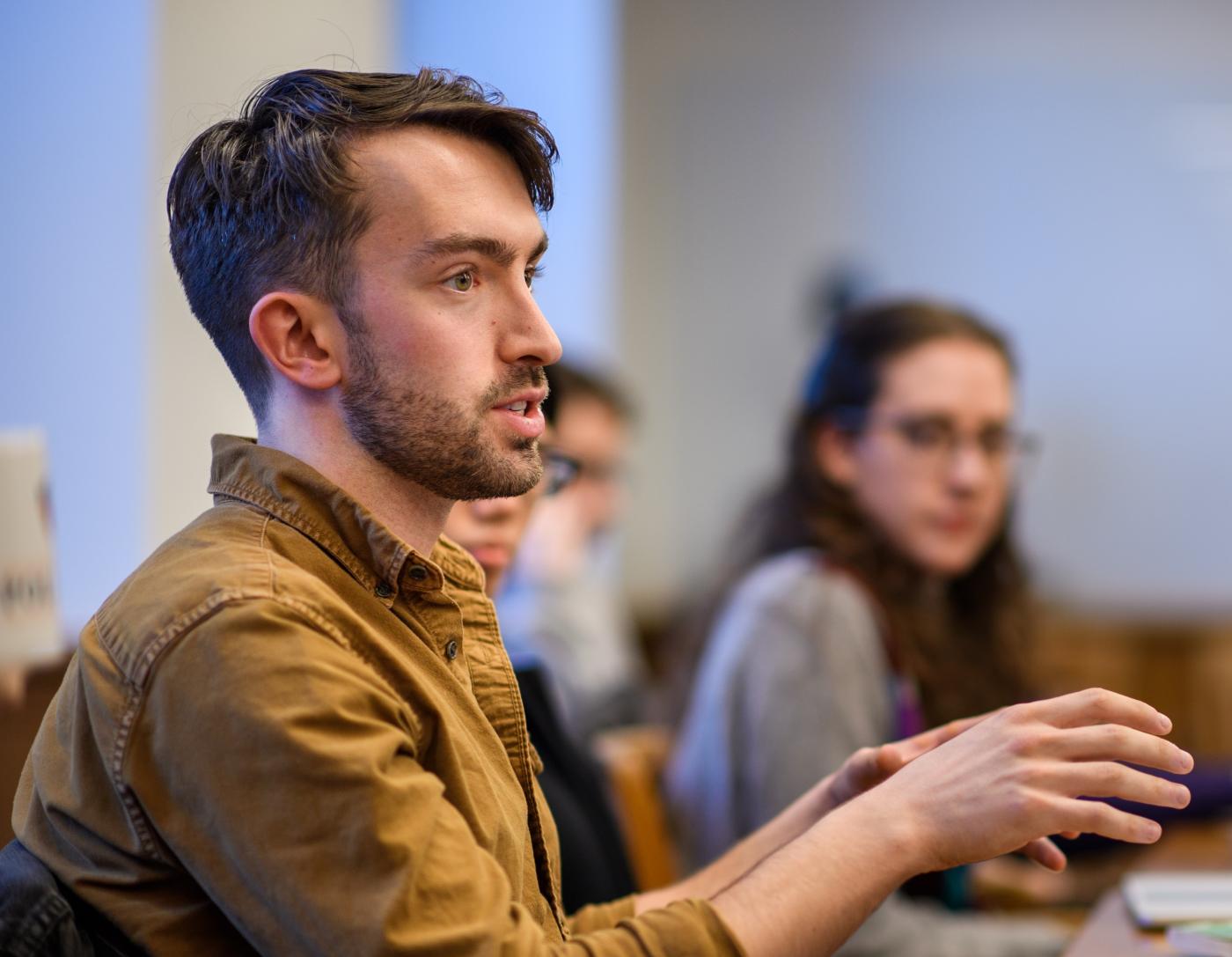
Princeton has one of the largest and most intellectually diverse faculties in political science in the United States, while maintaining a graduate program of relatively modest size. Our department boasts top-ranked programs in the four major subfields of political science (American politics, comparative politics, international relations, and political theory), as well as first-rate training in some smaller fields including public law and formal and quantitative methods.
The Department encourages students to pursue interdisciplinary work, and it has established formal programs in political economy (the application of microeconomic theory to political phenomena), political philosophy (the study of the core concepts and principles of political life), and social policy (the study of economic insecurity and inequality). Many students pursue interdisciplinary training and research on a range of other topics as well. Our program is designed to be flexible and support students in their particular research agenda.
The Department offers a Ph.D. program in Politics (we do not have a distinct M.A. program). We seek to train students to assume faculty positions at a range of institutions of higher education, and we have a strong history of successfully placing our students in academic positions. We support students pursuing a range of substantive research in the discipline, and offer extensive training in formal theory, statistics, and qualitative methods. On average, our incoming class consists of about twenty students, pursuing work across the discipline.
Although we do not have a single formula for making admissions decisions, admission to the program is highly competitive. Every student admitted to the program receives a fellowship offer that provides full funding for the graduate program, including five years of tuition, healthcare, and a living stipend that covers both the academic year and the summer (see financial support for more information). We separately require students to teach some discussion sections of undergraduate courses as part of their training (typically between the third and fifth years in the program), and encourage all students to work as research assistants to members of the faculty to gain practical experience with the research process.
The Department does not interview prospective students and does not encourage prospective students to visit campus prior to their admission to the program. Students who are admitted to the program will have an opportunity to visit campus and meet current faculty and students in the spring. Applications for admission are due in December and decisions are typically announced in February.
If you are a prospective student, please visit our plan of study page for an overview of the program. You should also review the range of faculty research interests to help decide whether Princeton is the right place to continue your studies.
Details about the admission process can be found on our admission information page and on the Graduate School website, and many questions about the admissions process and the program are answered on our frequently asked questions page.

